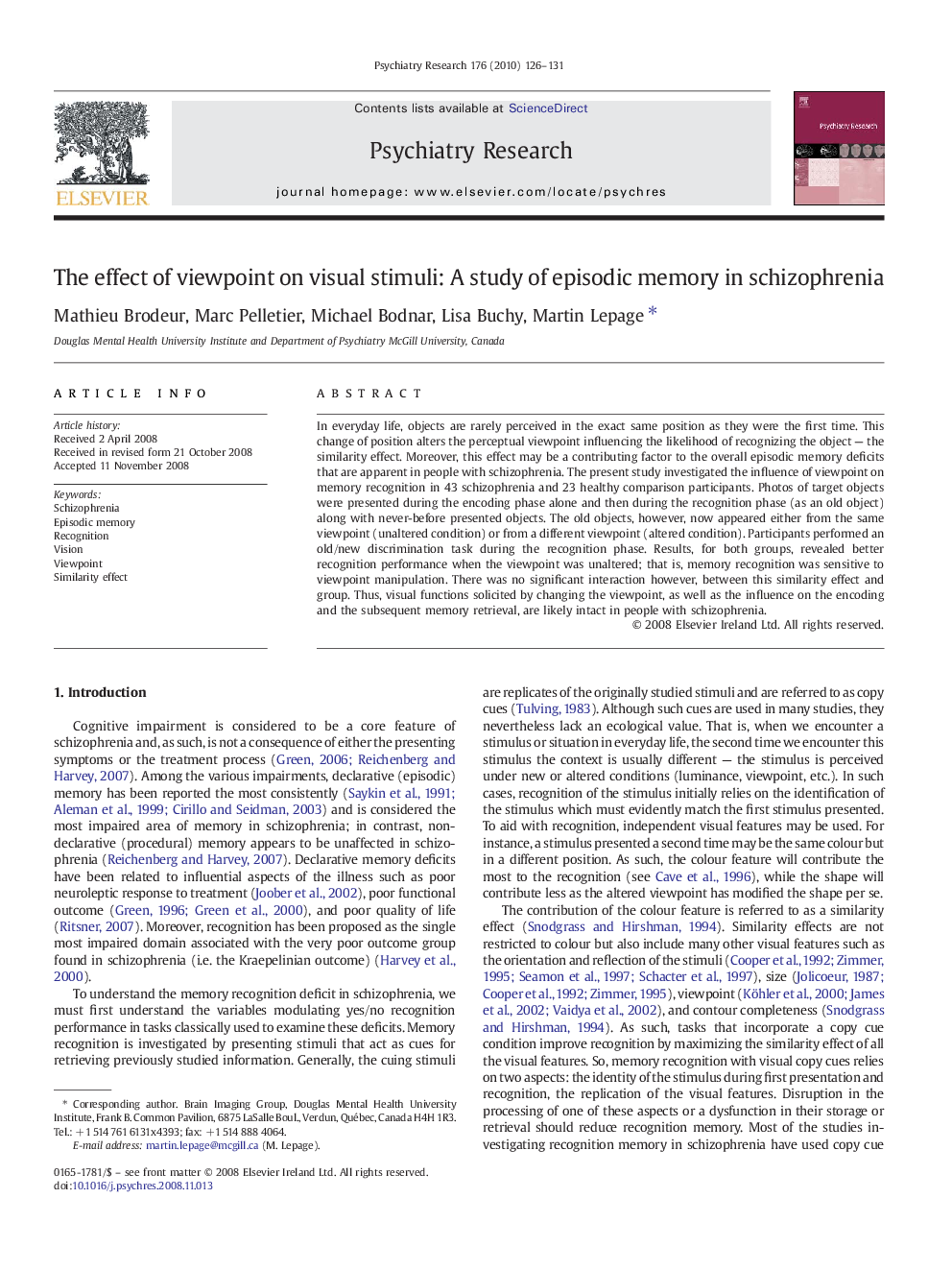| Article ID | Journal | Published Year | Pages | File Type |
|---|---|---|---|---|
| 333969 | Psychiatry Research | 2010 | 6 Pages |
In everyday life, objects are rarely perceived in the exact same position as they were the first time. This change of position alters the perceptual viewpoint influencing the likelihood of recognizing the object — the similarity effect. Moreover, this effect may be a contributing factor to the overall episodic memory deficits that are apparent in people with schizophrenia. The present study investigated the influence of viewpoint on memory recognition in 43 schizophrenia and 23 healthy comparison participants. Photos of target objects were presented during the encoding phase alone and then during the recognition phase (as an old object) along with never-before presented objects. The old objects, however, now appeared either from the same viewpoint (unaltered condition) or from a different viewpoint (altered condition). Participants performed an old/new discrimination task during the recognition phase. Results, for both groups, revealed better recognition performance when the viewpoint was unaltered; that is, memory recognition was sensitive to viewpoint manipulation. There was no significant interaction however, between this similarity effect and group. Thus, visual functions solicited by changing the viewpoint, as well as the influence on the encoding and the subsequent memory retrieval, are likely intact in people with schizophrenia.
